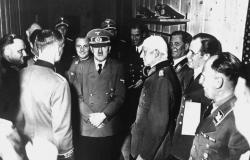(Use in South Korea only and prohibited redistribution) (Yonhap archive photo)
SEOUL, Apr 18 (Yonhap)-North Korean ballistic missiles shipped to Russia have become more and more sophisticated and more difficult to intercept by the Ukrainian army, according to a dispatch published Thursday (local time) by the New Voice of Ukraine media, citing a Ukrainian aviation expert, Anatoliy Khrapchinsky Ukraine Air Force.
Khrapchinsky said the North Korean ballistic missiles have been greatly improved with Russian technological support. He also detailed that the North Korean missiles used at the start of the war sometimes exploded in the air, but the recent version would have been developed with technological support from Russia.
These KN-23 and KN-24 ballistic missiles have become difficult to intercept with Ukrainian anti-aid means. According to Khrapchinsky, North Korean missiles sent to Kyiv on April 6 followed complex trajectories, preventing their interception.
He said the Ukrainian army has managed to intercept the Russian missile ISKANDER-M but not the North Korean missiles. The Ukrainian expert considered that the North Korean missile could change its trajectory in the last phase in order to blur the calculation of the trajectory by the Ukrainian army, while demanding a strengthening of the radar system and interception aircraft.
(FIN)








